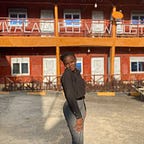Wrong or Right.
In a very recent disputation on the rather controversial and sensitive topic of Feminism, I was faced with the truth on the paradigms and perspectives people have. It was to my disappointment that I was not as objective as I claimed to be. I thought I was right based on my logic and rhetoric. I was wrong. I was basing my response on my beliefs on the particular topic. I was being impulsive and emotional on the contrary to practicing good judgment and testing my beliefs. I know you have been caught up in the heat of an argument before on maybe “Messi vs Ronaldo”, “Feminism is overrated”, “Politics in your country”, “Why England should have won the Euros this year” or even on simple things like “Cutting the line.” This article shares on what you may want to consider in any round table discussions you have.
There are many human rationalizations when it comes to dispute or topics of debate. As humans we are naturally inclined to think in a motivated manner based on defensiveness and nepotism. We think we see objectively yet our worth in most scenarios is tied to how right or wrong we are on delineating topics. The ability to have your reasoning rooted in curiosity, pleasure in learning, intrigue and having the virtuousness to test our beliefs is less correlated to IQ. It harmonizes more with practice of good judgement something that we think we practice often but actually don’t. Usually in the heat of dispute when someone changes their mind they are seen as “weak”. Carrying this mentality will unconsciously make you think that discussions are like a battle and that anything that is not an alias (in support of your argument) is an enemy and must be shot down. Again, flexibility is not a form of rejection but a sense of adaptability. When you’re wrong, feel proud rather than ashamed and use your principles objectively. The idea is not to win the argument or to support what you “think” is right but instead to see what is as honestly and accurately as you can.
“What do you most yearn for, to defend your beliefs or to see the world as clearly as you possibly can?”
The other cause that drives your being “objective” is perspective. Your rationality on given topics and their existence is based wholesomely on that, the incredibly narrow perspective that you have trying to answer all the questions that life gives. As human beings, we are the only tools we have to try and understand the chaos of living or what we like to call “this life thing”. We are always having arguments to back up our beliefs. We want to be rational at all times like it is a rule. Our rational minds are perched inside an animal’s body and we can’t even consider it sometimes. So too do we try to harness the chaos of the universe with tools, all too human. Language being the biggest one. In my opinion, there’s no guarantee that the symphony of grunts we’ve created is capable of describing anything accurately beyond basic human interaction. Language is all we have anyway but it cannot pronounce internally to the point of outing the opinion of the limbic and neocortex parts of the brain. It can’t help human beings chronicle their consciousness. The levels of existence we try to access and explain using the broken tools we have to do the job is disenchanting.
One of my favorite Philosophers, Fredrick Nietzsche reminds us that as humans we are in the constant campaign to fight against limitation of knowledge. We don’t have access to objectivity or eternal truths, all you have access to is a perspective and all they have access to is inter-subjectivity. Let me ask, how can you reliably decide what you’re going to believe? How can you stop people from believing in things that are patently false? How do you know that what you believe isn’t totally wrong? In our world today, who gets to give people their views on the order of things? As someone who has always wanted to be knowledgeable I got caught up in imposing my opinions rather than sharing them. I thought I had the right perspective. This pandemic taught me the value of uncertainty it taught me to seek knowledge in the truth rather than knowledge in my own objectivity. It is less about aligning the truth into what you already know and more about aligning and sieving your knowledge into the truth.
Simone de Beauvoir — ‘I tore myself away from the safe comfort of certainties through my love for truth — and truth rewarded me.’
